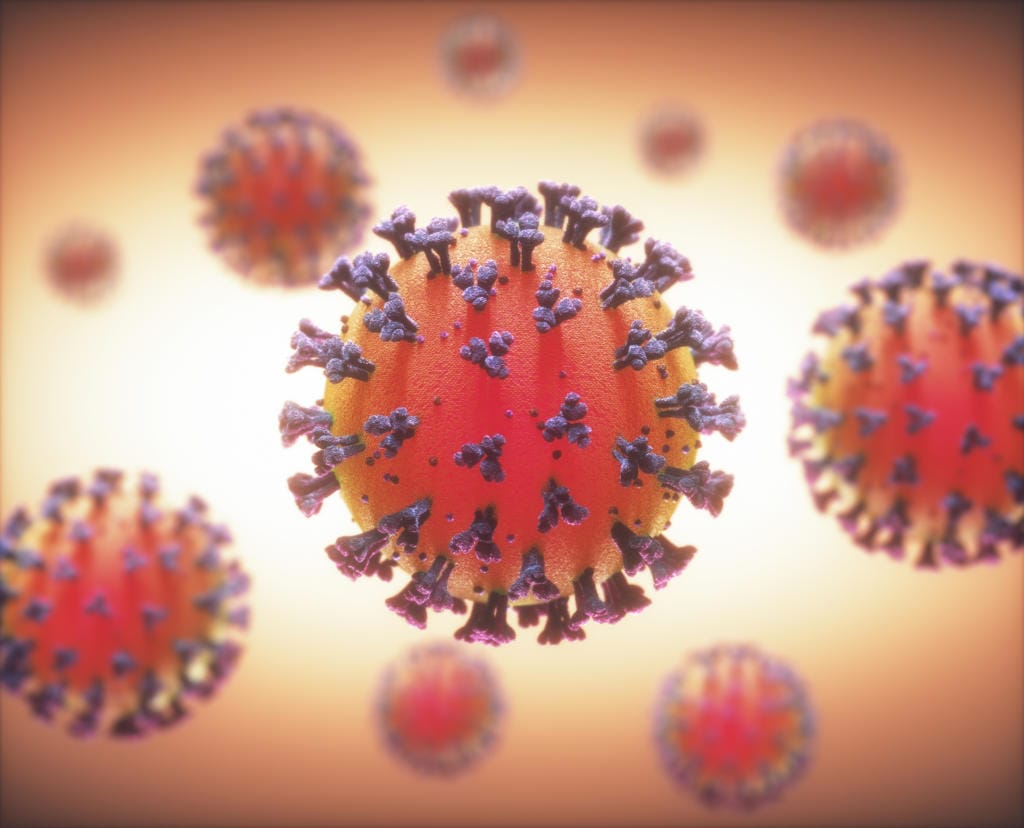Last month, it felt like everyone was coming down with some sort of respiratory illness — and many people were, as the nation was hit with a triple whammy of respiratory viruses.
But since 2023 began, rates of COVID-19, flu and respiratory syncytial virus have been declining, though health officials still urge residents to get vaccinated and do their part to keep the community safe.
COVID-19 and the new variant
Local data continues to show a decline in recorded COVID-19 cases, which is a trend mirrored around the country. As of Jan. 26, the seven-day case rate per 100,000 people was at 43.3, down from 55.7 the week before, according to Dr. Alan Melnick, director of Clark County Public Health, though he cautions the number is likely an undercount due to unreported at-home testing.
“The good news is … all these infections seem to be decreasing,” Melnick said. “The bad news about that is that there is a new variant called XBB.1.5.”
The omicron subvariant XBB.1.5 accounted for 61.3 percent of reported cases the week of Jan. 22 to Jan. 28 in the United States, up from 49 percent the week before and 37 percent the first week in January, according to the Centers for Disease Control and Prevention.
CDC data shows lower rates in Washington, Oregon and Idaho, with 20.3 percent of cases in that region coming from XBB.1.5, but the new variant is considered the most transmissible strain so far, according to Melnick. Though it is still in the early stages of developing, the data seems to suggest that the bivalent booster is effective against XBB.1.5.
Melnick cannot stress enough the importance of getting an updated vaccine to prevent the spread of the COVID-19 virus, he said. The case rate of the virus is anywhere from 1.8 to 2.4 times higher in unvaccinated individuals, according to Melnick. On top of that, the hospitalization rate for unvaccinated individuals is between 2.6 and 3.5 times higher than vaccinated individuals and the death rate is 4.1 times higher than in vaccinated people.
“We know that the vaccine is effective in preventing infections,” Melnick said. “So get your COVID vaccine booster.”
Currently, only 28 percent of the eligible population over 5 years old in Clark County has received an updated bivalent booster, according to the latest Clark County Public Health data.
Is flu season over?
As of the third week of 2023, Jan. 15 to Jan. 21, reports are showing minimal flu activity, according to the latest Washington State Department of Health data. Only 1.6 percent of flu tests came back positive, down from 2.3 percent the week before, 5.6 percent the first week in January and 10.1 percent the last week of 2022, according to the report.
Flu season is defined by two consecutive weeks of 10 percent or more positive flu cases. Just because the county is not currently in a flu season, Melnick urges everyone to get a flu vaccine because it is possible there will be a resurgence in cases.
“Technically, we’ve been below 10 percent for a couple of weeks,” Melnick said. “But if you look at previous years … it was coming down and then went back up again.”
This flu season is unusual, according to Melnick, following a two-year hiatus without any detectable flu virus.
Currently, the majority of positive flu cases are type A.
Help keep the community safe
Even if the county is not technically in a flu season, seeing a high RSV caseload or many reports of COVID-19, Melnick and other health officials urge the community to take steps to reduce the spread of any respiratory illness.
If you are sick, stay home from work or school. Wash your hands often with soap and water. Cover your cough. Consider wearing a mask in indoor crowded spaces. Most importantly, get vaccinated against both the flu and COVID-19, according to Melnick.
If you test positive for COVID-19 with an at-home test, health officials ask that you report it to the state’s COVID-19 hotline at 1-800-525-0127. For more information on where to schedule a vaccine or booster, visit VaccineFinder.org.




